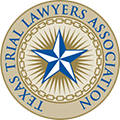
-
 We Take the Time To Understand Your Story
We Take the Time To Understand Your Story -
 We Tailor Our Solutions to Fit Your Needs
We Tailor Our Solutions to Fit Your Needs -
 We Stand at Your Side from Start to Finish
We Stand at Your Side from Start to Finish
Accidents Caused by Truck Driver Fatigue
Hit by a Tired Trucker? Talk to a Fort Worth Lawyer Today
Research clearly shows that driving while tired can be as unsafe as driving under the influence of alcohol. The National Sleep Foundation conducts a Drowsy Driving Prevention Week in November just to raise awareness about how dangerous it is to drive while tired. The Sleep Health Journal published an article in June of 2016 explaining why sleep-deprived motorists are unfit to drive. Their conclusion? “Individuals who have slept for 2 hours or less in the preceding 24 hours are too impaired to safely operate a motor vehicle.”
The Center for Disease Control (CDC) argues that drowsiness:- Makes it harder to pay attention to the road
- Slows a motorist’s reaction time to avoid hazards
- Affects a driver’s ability to make good driving decisions
The Huffington Post compiled an easy-to-digest overview of statistics in an article a few years ago for Drowsy Driving Prevention Week, showing that far too many people have no qualms about getting behind the wheel when they’re tired, even though they are significantly more likely to get into an accident when they do. One of the many shocking statistics? 37% of adult drivers say they have actually fallen asleep at the wheel.
Tired Truck Drivers & Trucking Accidents
The Federal Motor Carrier Safety Administration (FMCSA) recognizes the dangers of tired driving and has implemented federal trucking regulations to help combat driver fatigue. The hours-of-service rules are as follows:
| PROPERTY-CARRYING DRIVERS | PASSENGER-CARRYING DRIVERS |
|
11-Hour Limit:
May drive a maximum of 11 hours after 10 consecutive hours off duty. |
10-Hour Limit:
May drive a maximum of 10 hours after 8 consecutive hours off duty. |
|
14-Hour Limit:
May not drive beyond the 14th consecutive hour after coming on duty, following 10 consecutive hours off duty. |
15-Hour Limit:
May not drive after having been on duty for 15 hours, following 8 consecutive hours off duty. |
|
Rest Breaks:
May drive only if 8 hours or less have passed since the end of the driver’s last off-duty or sleeper berth period of at least 30 minutes (exceptions apply). |
--- |
|
60/70-Hour Limit:
May not drive after 60/70 hours on duty in 7/8 consecutive days. A driver may restart a 7/8 consecutive day period after taking 34 or more consecutive hours off duty. |
60/70-Hour Limit:
May not drive after 60/70 hours on duty in 7/8 consecutive days. |
Sleeper Berth Provision:
|
Sleeper Berth Provision:
Drivers using a sleeper berth must take at least 8 hours in the sleeper berth, and may split the sleeper berth time into two periods provided neither is less than 2 hours. |
These provisions are intended to keep truck drivers rested so that they aren’t endangering other people on the road by driving while tired, but sometimes these regulations aren’t enough. Truck drivers may not spend their mandatory rest breaks or sleeper berth times actually resting. Trucking companies may place unrealistic expectations on their drivers to make deadlines that can only be met by driving through their break times. Regardless of why a trucker was driving while tired, they need to be held responsible if they cause an accident due to their negligence. That is where a Fort Worth truck fatigue lawyer can help.
How Can We Help You?
- We are available 24/7
- We can provide an in-depth analysis of your case
- We make home and hospital visits
- You don’t pay unless we win
Call an Experienced Attorney in Fort Worth Today
The Law Office of Stanley M. James can help you build a strong case against a negligent truck driver and / or trucking company in order to recover fair compensation for a truck accident. Our team will investigate the details and work tirelessly to prove that the truck driver was in no condition to be operating a commercial vehicle while fatigued and that you are not liable for your accident.
Contact us today at (817) 591-4222 to set up your free case evaluation!



